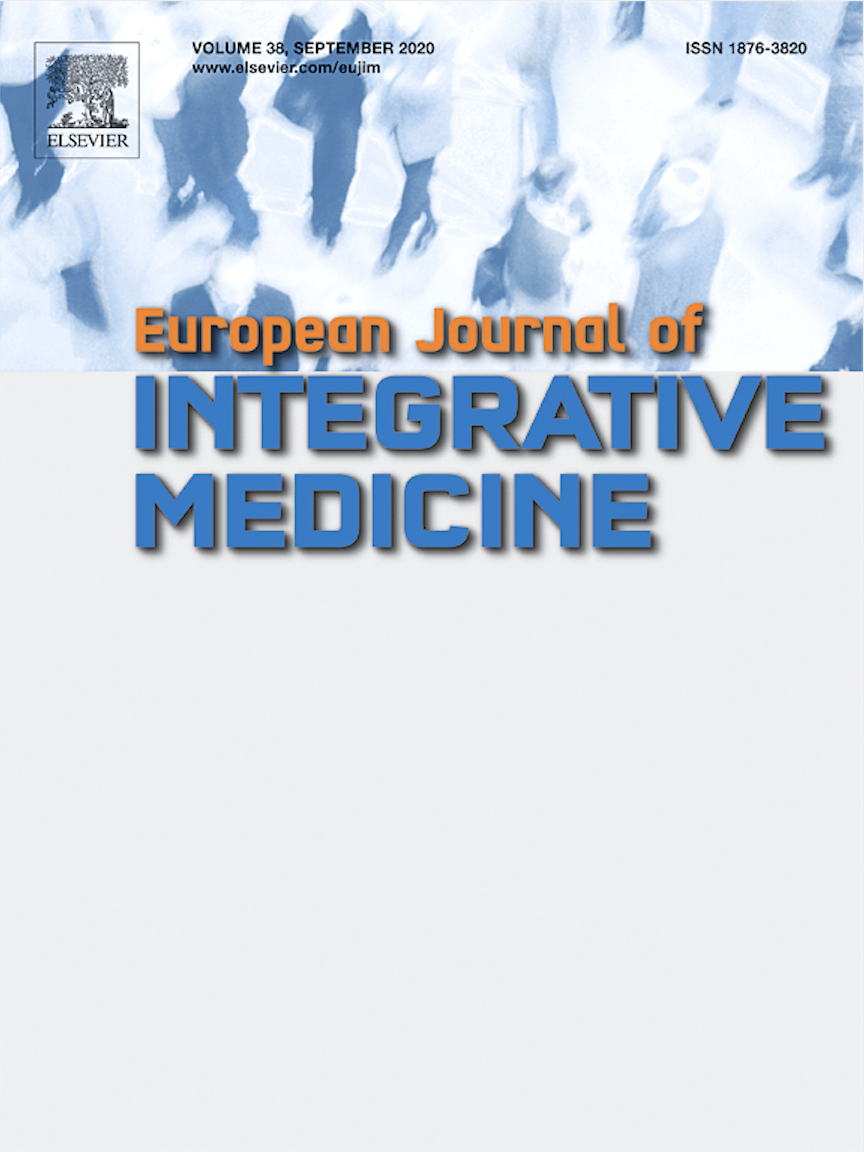Xiang Sha Liu Jun Zi Tang
How to submit an article:
- Registered users can submit any published journal article that has a unique DOI (Digital Object Identifier) name or link to Research Hub.
- For example, you can paste the full DOI link:
https://doi.org/10.1109/5.771073or just the DOI name:10.1109/5.771073into the field above and click submit. - The person who is first to submit a valid article to Research Hub will forever be credited for it, and every article submission earns you +6 Research Points.
Related Topics
Published research studies are articles that present the findings of original research that has undergone a peer-review process and has been made publicly available in scholarly journals, books or other media.

Six Gentlemen Decoction adding Aucklandia and Amomum (Xiangsha Liujunzi Tang) for the treatment of ulcerative colitis: A systematic review and meta-analysis of randomized clinical trials
2020 Jun European Journal of Integrative Medicine Yuan H, Zhang T, Huang S, Zhou J, Park S
Meta-Analysis Systematic Review Ulcerative Colitis Xiang Sha Liu Jun Zi TangOral treatment with Six Gentlemen Decoction with Aucklandia and Amomum (SGDAA), a traditional Chinese medicine, significantly improves the treatment of Ulcerative colitis compared to conventional Western medicine.

Chinese Herbal Medicine Liu Jun Zi Tang and Xiang Sha Liu Jun Zi Tang for Functional Dyspepsia: Meta-Analysis of Randomized Controlled Trials
2012 Dec 12 Evidence-Based Complementary and Alternative Medicine Ya Xiao, Yan-yan Liu, Ke-qiang Yu, Ming-zi Ouyang, Ren Luo, Xiao-shan Zhao
Liu Jun Zi Tang (LJZT) and Xiang Sha Liu Jun Zi Tang (XSLJZT) might be more effective compared with prokinetic drugs in the treatment of functional dyspepsia, and no side effects are identified in the included trials.
Meta-Analysis Indigestion Xiang Sha Liu Jun Zi Tang Liu Jun Zi TangResearch insights are moderated by the Research Hub team and offer an at-a-glance overview of interesting research findings.

2020 European Journal of Integrative Medicine
Oral treatment with Six Gentlemen Decoction with Aucklandia and Amomum (SGDAA), a traditional Chinese medicine, significantly improves the treatment of Ulcerative colitis compared to conventional Western medicine.
Meta-Analysis Ulcerative Colitis
Six Gentlemen Decoction adding Aucklandia and Amomum (Xiangsha Liujunzi Tang) for the treatment of ulcerative colitis: A systematic review and meta-analysis of randomized clinical trials
Yuan H, Zhang T, Huang S, Zhou J, Park S
Review Articles
Review articles summarise and critically evaluate the current state of research on a specific topic or field by synthesising multiple primary research studies.
Clinical Trials
Clinical trials are research studies that involve people and are conducted to evaluate the safety and efficacy of new treatments or interventions, such as drugs, medical devices, or behavioural therapies.
Study Protocols
Published study protocols are detailed plans that outline the objectives, methodology, statistical analyses, and organisation of a research study that have been made publicly available for others to review and use as a reference.
Presentation Slides

Meta-Analysis
Oral treatment with Six Gentlemen Decoction with Aucklandia and Amomum (SGDAA), a traditional Chinese medicine, significantly improves the treatment of Ulcerative colitis compared to conventional Western medicine.
Yuan H, Zhang T, Huang S, Zhou J, Park S
Executive Summary
Write an executive summary in the form of a blog article on the topic of "Research into Chinese medicine treatment for Xiang Sha Liu Jun Zi Tang" summarising the research below and using language that can be easily understood by patients and avoiding medical jargon using a professional and caring tone of voice.
Write an executive summary in the form of a blog article on the topic of "Researched Chinese medicine treatments for Xiang Sha Liu Jun Zi Tang" summarising the research below in an objective and easy to understand way, and using language that can be easily understood by patients. Group the article into Chinese medicine treatments first, followed by nutrition and other treatments. Avoid using medical jargon and use a professional and caring tone of voice.
Write me a concise but easy to understand executive summary on the topic of "Chinese medicine treatments for Xiang Sha Liu Jun Zi Tang" based on the following research that I will give you. Your summary should be 2 paragraphs long in Australian English spelling and include references to the studies.
A Meta-Analysis published in 2020 in the journal European Journal of Integrative Medicine found that Oral treatment with Six Gentlemen Decoction with Aucklandia and Amomum (SGDAA), a traditional Chinese medicine, significantly improves the treatment of Ulcerative colitis compared to conventional Western medicine. In the method of this research, Randomized controlled trials (RCTs) spanning the period from January 1960 to October 2019 were analyzed. These trials examined the use of the traditional Chinese medicine in question for treating ulcerative colitis. This extensive data was drawn from numerous scientific and medical databases in English, Korean, and Chinese. The resulting information was then processed through a software named RevMan 5.3 to conduct a meta-analysis. Furthermore, the studies were scrutinized based on their homogeneity and the odds ratios and confidence intervals were evaluated for accuracy and validity of each. In the exploration of the results, seven metanalysed studies (involving a total of 614 colitis patients) showed that the traditional Chinese medicine SGDAA had a significantly greater effect in treating ulcerative colitis than conventional western medicine. This conclusion was drawn from the comparative analysis of the SGDAA group (consisting of 308 patients) and the control group (composed of 306 patients receiving conventional Western medicine or another Chinese medicine). The analysis showed the SGDAA treatment was significantly more effective especially when the treatment exceeded 4 and 12 weeks. The beneficial impact of the SGDAA treatment in ulcerative colitis was seen in the forms of effective response and curative response.
Moderation Tools
Topic
Sign In
Users not signed in are limited to viewing the 5 most recent items of content.